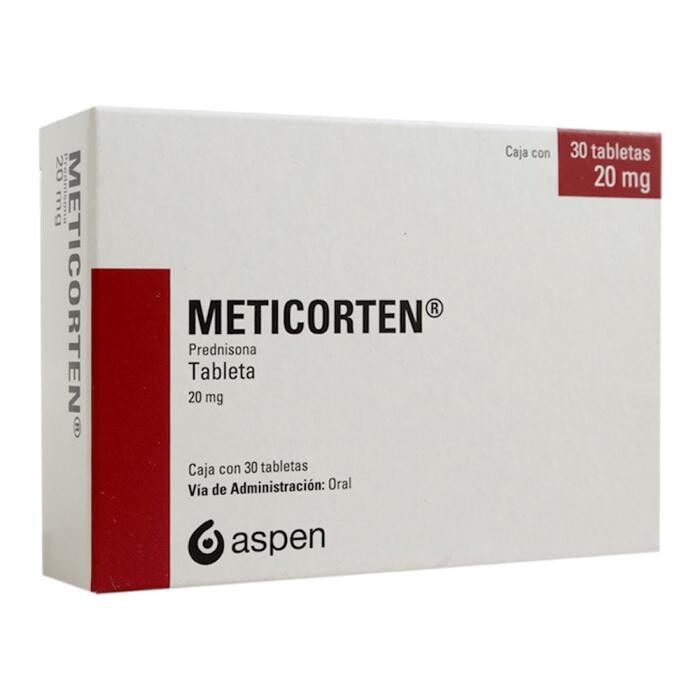METICORTEN (PREDNISONE) 20MG 30TABS
Prednisone is a corticosteroid. It prevents the release of substances in the body that cause inflammation. It also suppresses the immune system.
Prednisone is used as an anti-inflammatory or an immunosuppressant medication. Prednisone treats many different conditions such as allergic disorders, skin conditions, ulcerative colitis, arthritis, lupus, psoriasis, or breathing disorders.
IMPORTANT INFORMATION
Prednisone treats many different conditions such as allergic disorders, skin conditions, ulcerative colitis, arthritis, lupus, psoriasis, or breathing disorders.
You should not take prednisone if you have a fungal infection anywhere in your body.
Call your doctor at once if you have shortness of breath, severe pain in your upper stomach, bloody or tarry stools, severe depression, changes in personality or behavior, vision problems, or eye pain.
You should not stop using prednisone suddenly. Follow your doctor's instructions about tapering your dose.
BEFORE TAKING THIS MEDICINE
You should not use this medication if you are allergic to prednisone, or if you have a fungal infection anywhere in your body.
Steroid medication can weaken your immune system, making it easier for you to get an infection or worsening an infection you already have or have recently had. Tell your doctor about any illness or infection you have had within the past several weeks.
To make sure prednisone is safe for you, tell your doctor if you have:
- any illness that causes diarrhea;
- liver disease (such as cirrhosis);
- kidney disease;
- heart disease, high blood pressure, low levels of potassium in your blood;
- a thyroid disorder;
- diabetes;
- a history of malaria;
- tuberculosis;
- osteoporosis;
- glaucoma, cataracts, or herpes infection of the eyes;
- stomach ulcers, ulcerative colitis, or a history of stomach bleeding;
- a muscle disorder such as myasthenia gravis; or
- depression or mental illness.
Long-term use of steroids may lead to bone loss (osteoporosis), especially if you smoke, if you do not exercise, if you do not get enough vitamin D or calcium in your diet, or if you have a family history of osteoporosis. Talk with your doctor about your risk of osteoporosis.
Prednisone can cause low birth weight or birth defects if you take the medicine during your first trimester. Tell your doctor if you are pregnant or plan to become pregnant while using this medication. Use effective birth control.

